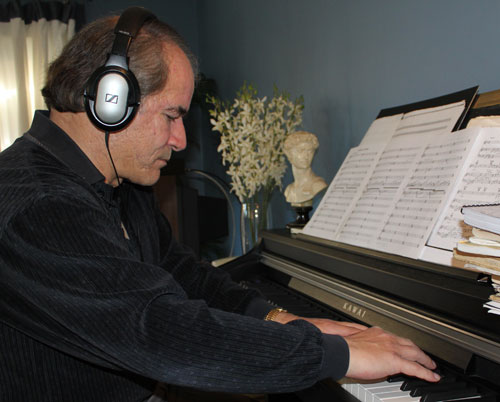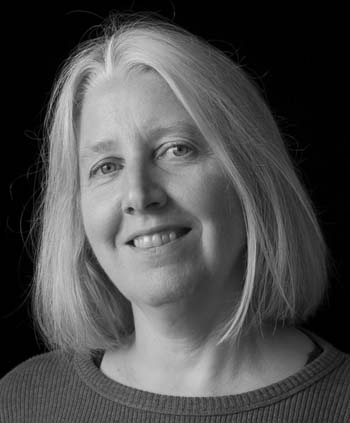Composer, music educator, and concert pianist Paul Davies recently completed his first full length opera based on the life of Charlotte of Belgium who was Empress Carlota of Mexico during the period in Mexican history known as the French Intervention.
Davies received a Ph.D in music from the University of California at San Diego. He currently teaches composition, music appreciation, music theory, and a course on the Beatles at Foothill College in Los Altos Hills, California. Davies has also appeared as soloist with the Foothill Wind Ensemble, the Winchester Orchestra, and the South Valley Symphony.

Whirligig: You recently completed the writing of an opera, Carlota. What inspired you to write an opera?
Paul: I had been invited to give a talk about my music and present a new composition, an instrumental ensemble piece, at the Ernest Bloch New Music Festival in Newport, Oregon, in July of 1999. I was at one of the festival concerts where another composer premiered a new chamber opera of his when the idea of doing an opera myself flew into my head. I had been thinking of the tragedy of Empress Carlota for quite a few years before this, but never with the idea of doing an opera on the subject.
I suppose another impetus was that I’ve always been fascinated by history and of the possibility of traveling back in time. So doing an opera on Carlota is the closest I’ll ever get to time-travel, so to speak. I realized that my research would involve reading every major book on the subject I could get my hands on and also traveling to Mexico City to visit Chapultepec Castle, where Carlota and the Emperor Maximilian lived during their short reign. I very much looked forward to this.
Whirligig: What path did your research for this project take you on?
Paul: Since I was intent on doing the text myself, I spent a lot of time researching how to do a good libretto, and I also consulted with two dramaturges who gave me much invaluable advice. I analyzed quite a few librettos to gain further insight. Also, I came across very interesting photographs of the time period. I remember being at the library of San Diego State University and finding a photograph of the moment Maximilian and Carlota enter Mexico City in June of 1864.
Every time I read about an historical event, there’s always at the back of my mind this very small sense of myth, a sense of maybe what I’m reading about didn’t happen since I wasn’t there to actually see it. It’s not that I don’t believe the event happened, or that the historical figure in question never existed, It’s just that tiny feeling of “unreality” since I didn’t experience it myself. But when I saw this photograph I almost jumped and said to myself, “Wow, this really did happen.” I get the same kind of feeling when I look at a life mask of Beethoven, or some other figure for whom the only visual representations are idealized paintings. If I hadn’t been a composer, I probably would have been an historian.

 Steven Andrew Kacsmar is a San Francisco based singer songwriter. His band Phantom City has just released its second CD Off the Map.
Steven Andrew Kacsmar is a San Francisco based singer songwriter. His band Phantom City has just released its second CD Off the Map. Whirligig: When we first met you told me your poetry was about nature, but it actually encompasses so much more than what might typically be called nature poetry. I see yours as more like landscapes with an aftermath of human residue. What inspires you to write?
Whirligig: When we first met you told me your poetry was about nature, but it actually encompasses so much more than what might typically be called nature poetry. I see yours as more like landscapes with an aftermath of human residue. What inspires you to write?